Total solar eclipse 2023: Rare event seen in Australia
- Published
- comments
Check out this total solar eclipse in Australia!
Thousands of stargazers made their way to a small town in Australia to catch a glimpse of a rare, total solar eclipse.
A total solar eclipse happens when the Moon passes between the Sun and the Earth, completely blocking out the light.
The spectacular event happens roughly once every 18 months, but each time it can only be seen in certain parts of the world.
The whole of Australia and other parts of the Asia-Pacific could see partial solar eclipses on Thursday morning, but the total solar eclipse was only be visible in the sky in part of north west Australia.
It's important never to look directly at the Sun as it can permanently damage your eyes.
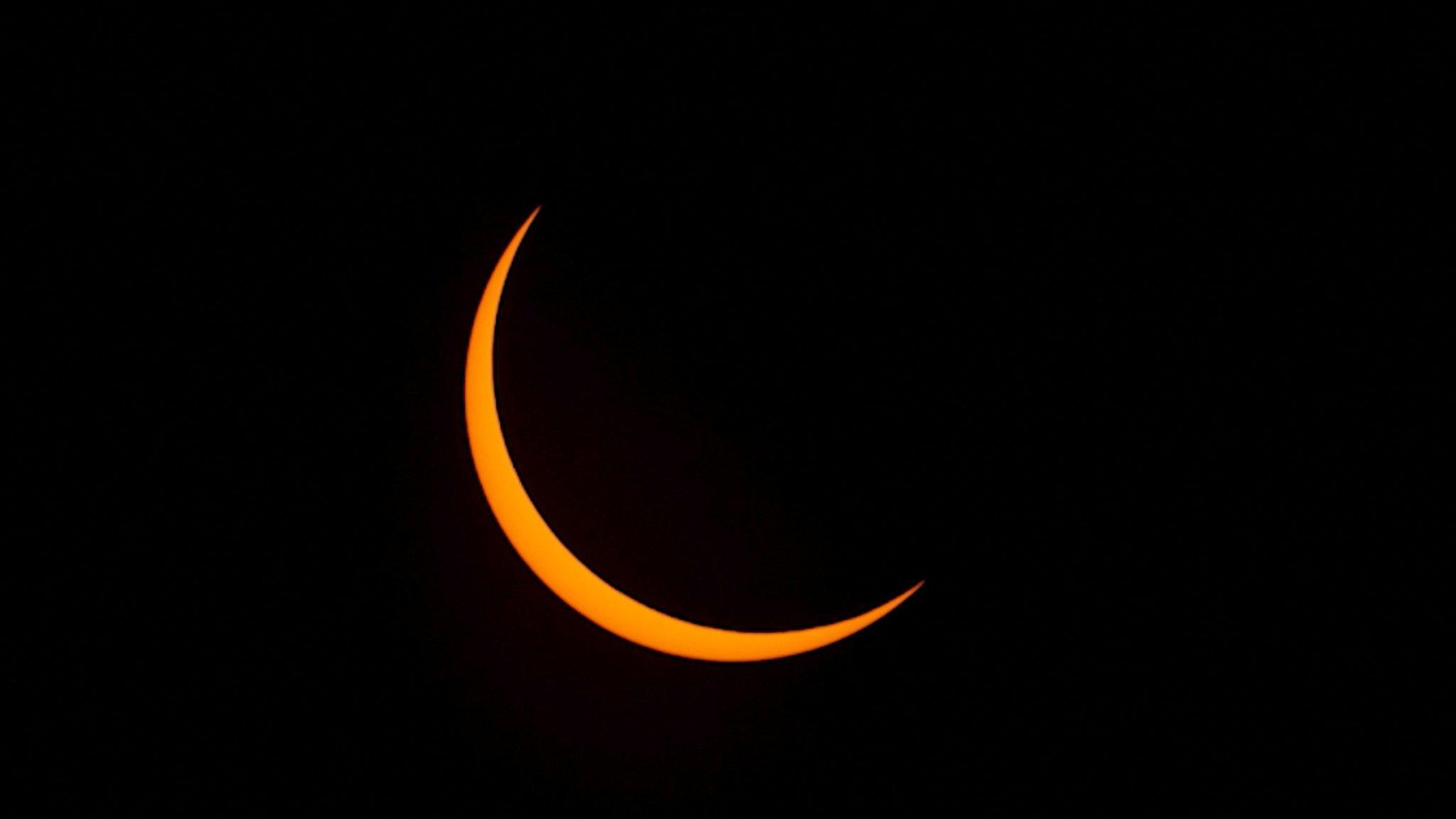
Total solar eclipses happen roughly every 18 months, but they can only be seen in certain places
The sky above Exmouth turned dark for around a minute, when the Moon cast a 24 miles (40km) wide shadow over the area.
The town is usually home to almost 3,000 people, but almost seven times that number of people were there recently to experience the spectacular event.
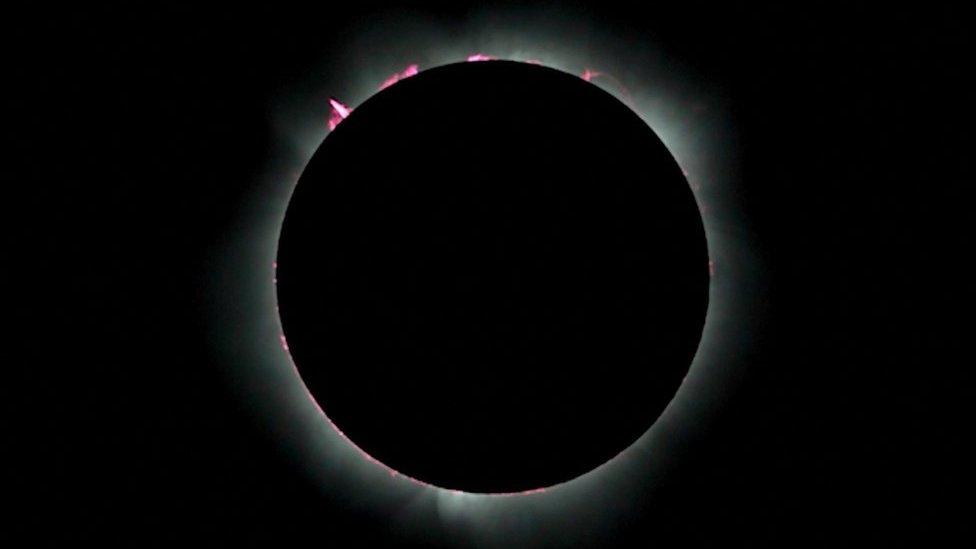
When you can see the ring of the Sun behind the Moon like this, it's called a corona.
A group of tourists and scientists cheered at 11:27am local time (04:27am in the UK) as the temperature dropped and the sky turned dark.
What is the difference between a total solar eclipse and a solar eclipse?
A solar eclipse happens when the Moon blocks out some of the light of the Sun, whereas during a total eclipse it blocks out all of its light.
For an eclipse to be total, the Sun, Moon and Earth must be directly aligned.
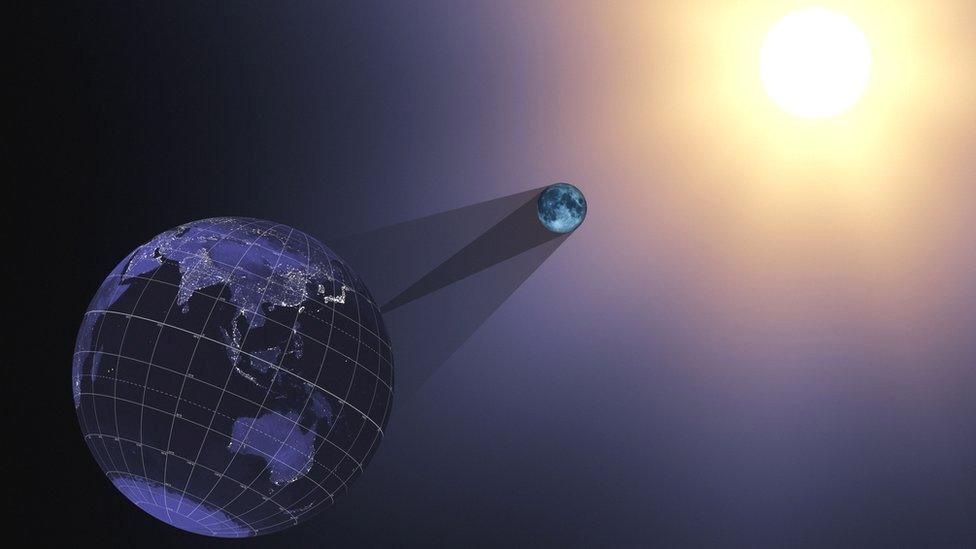
This picture shows how a shadow is cast on the Earth when the Moon moves in between the Sun and the Earth
This casts a shadow over part of the Earth. The area on the Earth where the shadow directly falls, is the point at which people will be able to see a total solar eclipse.
This is because the Moon will be completely blocking the Sun's light, so it will fall dark for a short time just like it's night time - even if it is the middle of the day!
Total solar eclipses can be confusing for animals, because they think that it is night time
When will we see a solar eclipse in the UK?
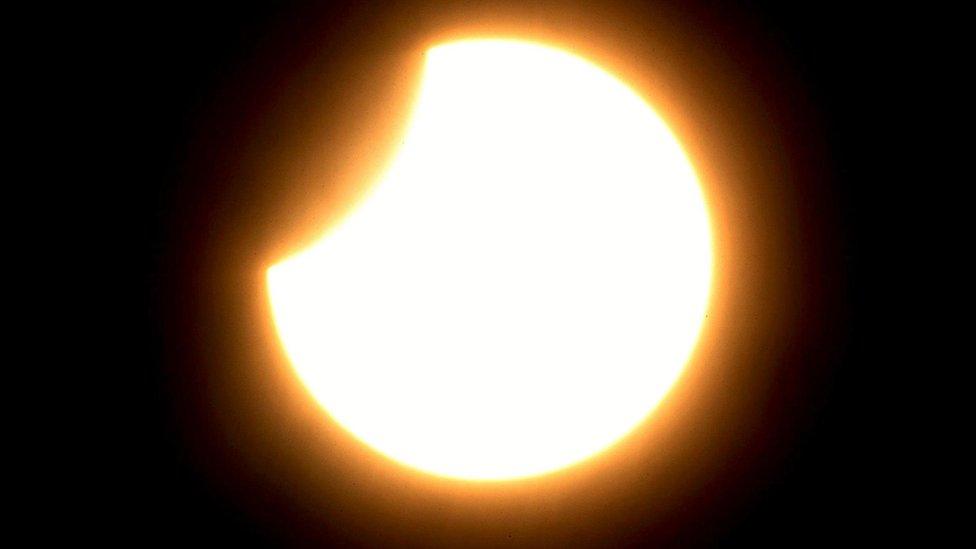
This is what the Sun looks like during a partial solar eclipse - a bit like the Moon is 'taking a bite' out of the Sun
As the UK isn't on the path of the eclipse, we'll see nothing this time.
The next eclipse that we will be able to see in the UK will be on 12 August 2026, when there will be a very large partial eclipse visible across Britain with as much as 96% of the Sun covered by the Moon in the south west of the country.
The next total eclipse visible in the UK is not until 23 September 2090.
How can you watch a solar eclipse safely?
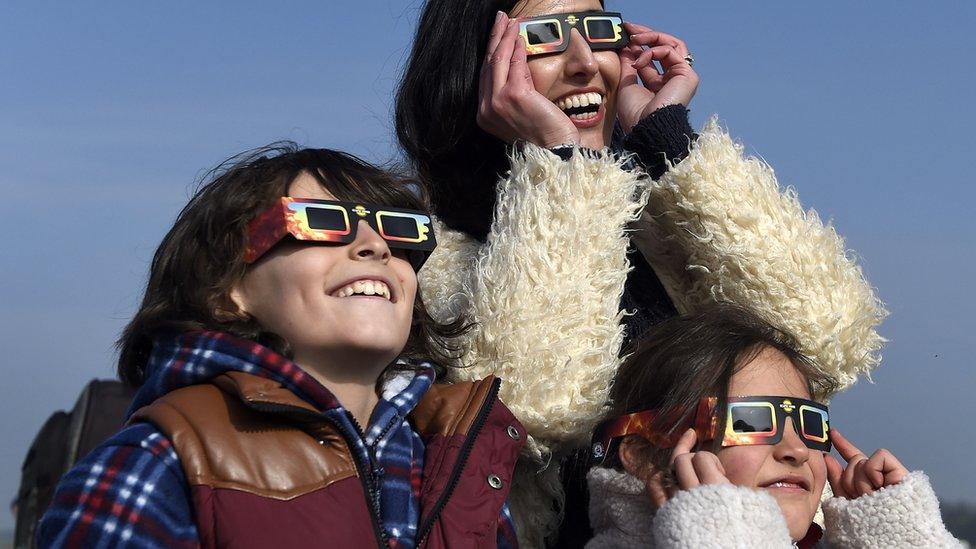
It is extremely important that you don't look at the eclipse directly without proper protective glasses
There are rules about how to watch an eclipse in order to stay safe:
Never look directly at the Sun: you can damage your eyes forever
Never look at the Sun through binoculars or a telescope.
Don't look directly at the Sun through sunglasses, a camera or your phone camera - none of these suitably protect your eyes
In order to watch an eclipse happening, you will need special glasses. These are specially darkened and filtered to protect your eyes.
WATCH: How to make a pinhole camera
Alternatively, you can use a special pinhole camera, which you can make easily at home.
Make sure that you are standing as far away from any artificial light - like bright houses or street lamps - as possible, as the darker it is where you are, the better your view will be.
- Published11 June 2021
- Published25 October 2022
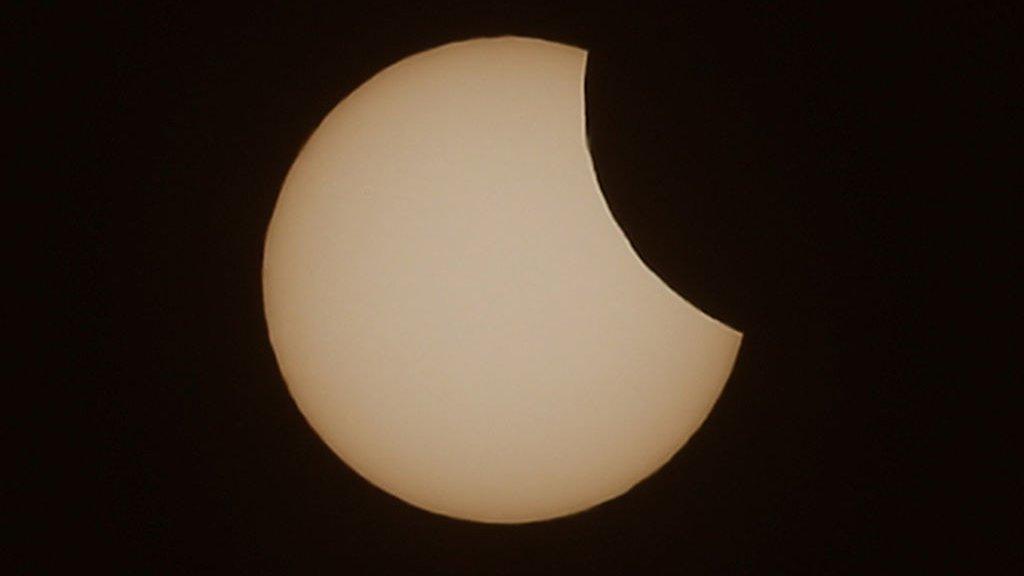
- Published2 July 2022
